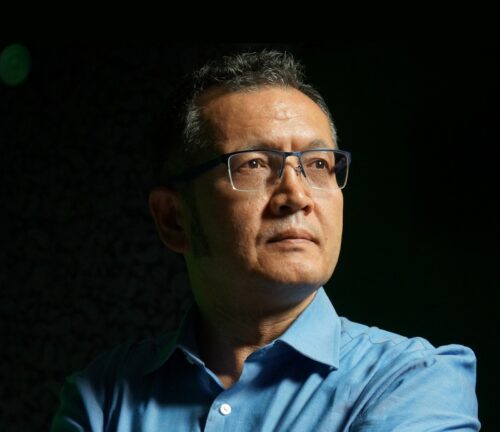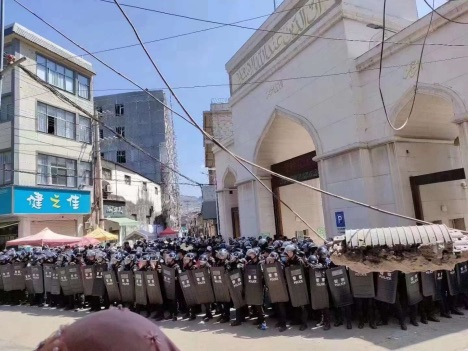Protesters call for Xi Jinping to step down. What’s next?
Popular anger at the Chinese government’s COVID-zero policies has not yet subsided. The Chinese Communist Party is already acting to suppress dissent. China has not been this tense in decades.

Over the weekend, protests took place all over China, including Beijing, Shanghai, Nanjing, and Urumqi, as crowds demonstrated against ongoing COVID-19 lockdowns.
The protests came after a fire in Xinjiang’s capital city Urumqi resulted in the death of 10 residents and the injury of nine more, leading many in China to question whether lockdown measures such as sealed doors may have prevented the victims from escaping the building.
“Down with the CCP, down with Xí Jìnpíng 习近平,” yelled some demonstrators on social media videos (see video embedded in this China Project article).
- In other protests, people held up white pieces of paper to draw attention to censorship. Some are how talking about a “white paper revolution” (白纸革命 bái zhǐ gémìng).
- Chinese people abroad have started protests: There was one in front of the Chinese consulate in Los Angeles yesterday, and a similar protest is being planned by Chinese people living in New York tomorrow.
- Initium Media, a Chinese-language news organization originally founded in Hong Kong, has estimated that students from at least 79 tertiary education institutions have taken part in protests.

The government is already working hard to stop the protests:
- The official state broadcaster, CCTV, is altering its coverage of soccer World Cup games to minimize close-ups of crowd shots that show maskless spectators. (The “normality” of the mask-free international football competition has made a big impression on the enormous number of Chinese people who have been watching the World Cup.)
- Police in Beijing and Shanghai and elsewhere around the country are stopping people to check their phones, and forcing them to delete photos of protests.
- There is a misinformation campaign that is probably Chinese state-backed on Twitter in which bots are spamming search terms in Chinese characters for Chinese city names with advertisements for sexual services, which make it difficult to use Twitter to find accurate information about the protests.
- BBC journalist Edward Lawrence was briefly detained in Shanghai, and various state actors and state supporters are trying to suggest that the protests have been orchestrated by “hostile foreign forces.”
- Even sarcastic social media postings that just say “good, good, good, good, good” are being censored.
What happens next?
The situation in China right now is as unpredictable as it was in 1989. But the party-state has already succeeded in slightly calming the protests. The next steps will probably be:
- The harassment and detention of any protesters that the police can identify from social media and surveillance camera videos, and of their families, friends, and colleagues.
- A propaganda campaign to blame foreign forces for the protests.
- Some refinement of the COVID-zero policies, but not a meaningful relaxation.
Other reports:
- Xi faces stiffest challenge to rule as COVID outrage sparks mass protests / FT (paywall)
- Young women at front line of China’s sweeping COVID protests / Bloomberg (paywall)
- Chinese protesters use tricks to evade censors, vent anger / Bloomberg (paywall)
- Blank sheets of paper become symbol of defiance in China protests / Reuters
- China might not make major changes to its COVID policy any time soon, despite weekend protests / CNBC
- China’s Urumqi eases public transport curbs amid rare protests / Bloomberg (paywall)
- China COVID cases hit fresh record high after weekend of protests / Reuters






